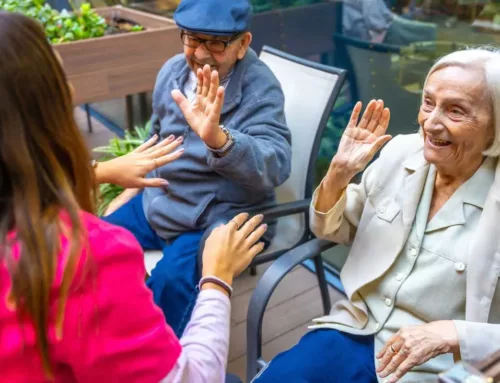
Choosing residential assisted living in Tucson isn’t always a straightforward decision, but it can be one that greatly improves quality of life for seniors requiring around the clock care. If your loved one is experiencing issues like declining health and mobility or social isolation and loneliness, residential senior care could deliver the ideal solution.
While there are a whole host of options available for elder care, from home health right through to 24-hour nursing, residential senior care strikes an excellent balance between independence and attentive, compassionate care. Here are just five of the best benefits residential senior care can offer.
1. Carefully Tailored Nutrition
Getting adequate nutrition is vital for aging adults, with nutrients including calcium, vitamin D and vitamin B12 playing an important role in maintaining senior health. A good, balanced diet can help reduce a senior’s risk of developing health issues like high blood pressure, type 2 diabetes and certain types of cancer.
What’s more, good nutrition can be energy and mood boosting, contributing to an overall better quality of life. Seniors in residential assisted living communities are typically served three delicious and nutritionally balanced meals (plus snacks) each day. These meals are tailored to meet the nutritional needs of seniors, as well as the personal preferences of residents.
2. Compassionate, Personalized Support
It’s often difficult for seniors to accept that they need extra support with activities of daily living like eating, getting dressed, or bathing. In residential assisted living, seniors can access the right level of support to suit their needs, while also being allowed to retain as much of their valued independence as possible.
Senior care teams are well trained and experienced in providing care that is not only competent and safe, but dignified and compassionate. Prior to moving in, elder care staff will sit down with a senior and their family to discuss their needs in depth, building a tailored care plan. This attention to detail paired with regular reviewing of care plans allows residents to get the correct support from the outset and beyond.
3. Safety and Security
The safety of a senior loved one is often a key worry for family caregivers, particularly if their relative lives alone in their own home. Residential assisted living facilities are typically staffed around the clock, so residents can receive assistance with personal care at any time. With 24/7 supervision, emergencies can also be responded to as quickly as possible.
Many communities also have secure locked entrances, preventing unexpected visitors from entering and seniors from wandering outside and into harm’s way. When you visit a residential assisted living facility, be sure to ask about staff to resident ratios, safety procedures and emergency plans.
4. Social Life and Activities
While much emphasis is placed on physical health issues like declining mobility, the effects of loneliness and isolation on seniors are often overlooked. With the passing of spouses, siblings and friends, and family caregivers who may have family and work commitments of their own, aging seniors often suffer from a lack of social interaction.
Sometimes, reduced mobility and a declining social life might come hand in hand, too; if a senior is unable to leave the house, they also likely have fewer opportunities to socialize. In residential assisted living, seniors have all the companionship they need right outside their front door.
Senior care facilities feature communal spaces for mealtimes and leisure, where residents can come and go as they please. Whether they wish to chat with friends, share a game of cards or simply read the newspaper in the company of others, there will always be someone around.
Residents in an elder care community can also enjoy the variety of activities, groups and classes offered. Typically, things like art and music groups, physical exercise sessions or spiritual groups are offered as part of the programming when a senior moves to residential senior care. One-off activities, events and days out may also be included in a community’s monthly calendar.
5. Medication Management
Many seniors struggle to keep track of medication needs when living at home. Seniors often find themselves on more medications than they have previously taken, and it can become difficult to keep track and take everything on time at the right dosage.
Skipping medication or taking too much is a common issue for seniors, and it can put them at risk of a whole host of health complications. In residential assisted living, seniors can have professional caregivers help them with the management of long and short-term health conditions requiring medication.
These are just five of a whole spectrum of residential assisted living benefits that can help keep seniors physically, socially, emotionally, and mentally healthy. With the right personalized support, seniors are left able to enjoy the rich and fulfilling retirement they always envisioned.
How Residential Assisted Living Helps Family Caregivers
By choosing the right elder care community, family caregivers can also gain the peace of mind they deserve. Balancing the care of a senior loved one with other commitments and responsibilities can be overwhelming or impractical for family caregivers, and trying to do so can lead to burnout.
Choosing residential assisted living not only means expert care for the senior, but it can also grant family caregivers much needed balance and relief. In turn, these important family members can spend more quality time with their senior loved one, free from the pressures that can accompany caregiving.
If your loved one would benefit from support in any one of the above categories, residential assisted living could be the best way forward for their care. To find out more about how we can support your loved one’s unique needs, get in touch, and arrange a visit today.




